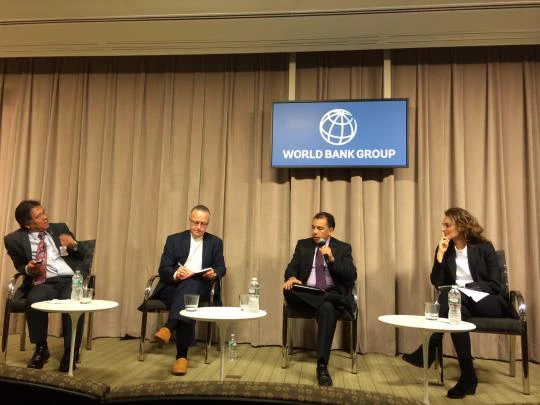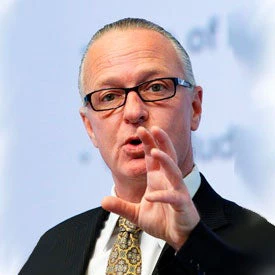
Alberto Leyton, World Bank; Melanie Walker, World Bank.
In his recent presentation (video) at the World Bank, Minister Idris Jala - Chief Executive Officer of the Malaysian Prime Minister’s Performance Management and Delivery Unit (PEMANDU) - shared his “six secrets of transformational leadership,” reflecting on five years of leading Malaysia on a journey to deliver on its economic and social promises.
Malaysia’s PEMANDU was established in September 2009 with the objective to oversee the implementation, assess the progress and facilitate the delivery of the Government Transformation Programme (GTP) and the Economic Transformation Programme (ETP), both of which are central to its plan of transforming Malaysia into a high-income nation by 2020.
Delivery units at the center of government are a popular reform, reflecting an on-going search for better performing governments. Most delivery unit presentations focus on the structure and functioning of such units – the technical plumbing - but not this one. Minister Jala was very clear -- politics and administration are not two ends of a spectrum, but are deeply intertwined. While political economy is not a new concept to the Bank, it’s less common to explore the dynamic interplay of reform and political opportunities and the importance of consensus, the value of active leadership, evidence and data based management, attention to feedback loops and course correction.
Minister Jala shared his reflections on starting and sustaining reforms encapsulated in “six secrets:”
1. Play the game of the impossible
When setting goals, set them so high that everybody realizes how impossible they are to reach, and that it is ok to fail. Only once people move from fear of failure can transformation happen because new ideas emerge to meet impossible challenges.
2. Use Key Performance Indicators (KPIs) as anchors
Work backwards from KPIs to identify the outputs and activities necessary to ‘move the needle.’ This allows conversations that challenge traditional recommendations and permit changing course when off track.
3. Discipline of action
The work of identifying objectives is only the start. Reform should be broken down into highly detailed activities with funding and responsible persons. For Minister Jala, the real work occurs in defining action at three feet, not just planning at 30,000 feet.
4. Exercise situational leadership
A good leader must read organizational signs and adapt their style to the situation. Normally, at the start of a reform process, a leader may need to be more directive, especially when uncertainty and anxiety is generating resistance. As fear settles and consensus emerges, a leader’s style should become more empowering.
5. Build a winning coalition
Build and maintain collaborative networks, recognizing conflicting views and political polarities. Engagement should reach out beyond traditional stakeholders, and include strategic communication as a critical aspect to generate wider support.
6. Accept “divine” intervention
Regardless of how much effort is invested, humans have limited control of what ends up happening. We operate in highly complex systems and a leader must acknowledge this uncertainty.
These are valuable reflections from hard-won experience. For the Bank, there are some important questions in applying these lessons elsewhere.
Would/ should, all leaders make public promises that everybody knows are impossible to achieve? Not all politicians have the luxury to set impossible targets. In some countries, public failure to meet any public goal lowers trust in government, and harms the credibility of other objectives.
Is data really a neutral arbiter? Data can be gamed and metrics can generate perverse incentives. Since you tend to ‘get what you measure’, if the measure is flawed, it can drive public systems in very extreme ways, with negative consequences for service delivery.
What came as a real revelation to us in Minister Jala’s talk is that despite and because of the challenges, it is still possible to find space where opportunity, leadership and technically sound reform overlap with elected official’s interests to produce better performing institutions and results citizens care about.




Join the Conversation